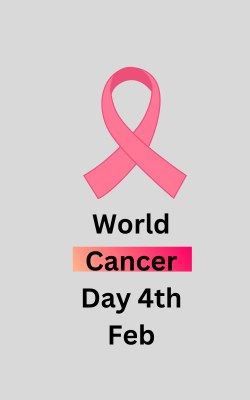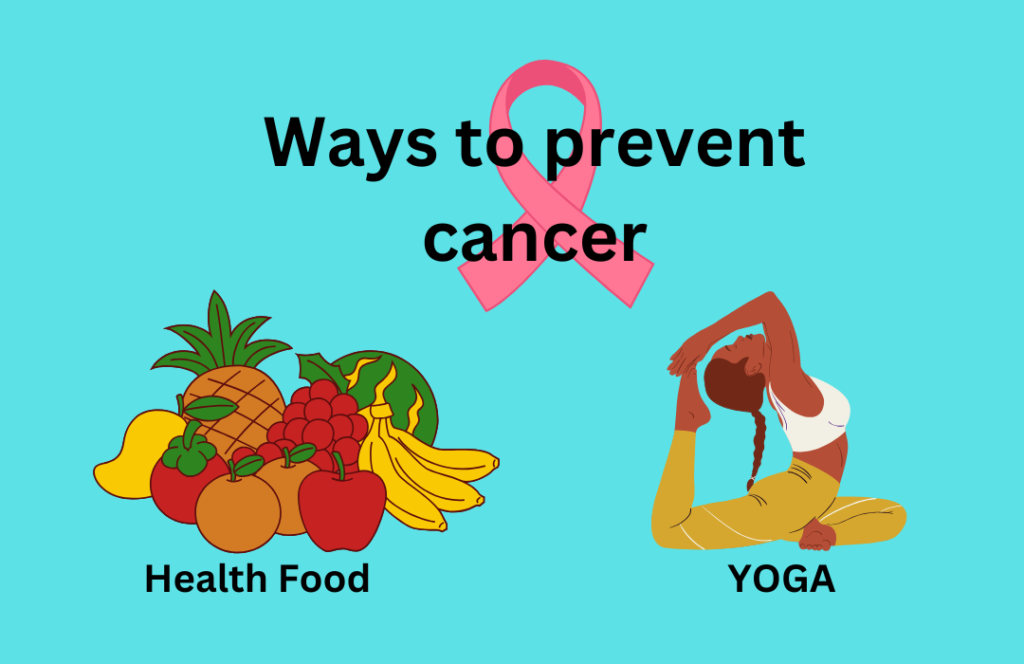Every year on February 4, the world comes together to celebrate World Cancer Day – a day dedicated to raising awareness, inspiring action and promoting hope in the fight against cancer. This global initiative led by the Union for International Cancer Control (UICC) reminds us that cancer is not just a health problem, but a human problem that affects millions of people worldwide.

The theme for World Cancer Day 2023-2025 is “Bridge the Care Gap”. It highlights inequalities in cancer care and the urgent need to ensure that everyone, regardless of their background, has access to life-saving prevention, diagnosis, treatment and support. The care gap exists due to factors such as income, education, geography and discrimination. This theme calls for collective action to bridge these gaps and create a more equitable world.
Why World Cancer Day is important
Cancer is one of the leading causes of death worldwide, claiming nearly 10 million lives each year. Yet, many cancers are preventable, and timely detection can significantly improve survival rates. World Cancer Day serves as a powerful reminder that:
-Awareness saves lives: Understanding risk factors such as smoking, poor diet and lack of exercise can help prevent cancer.
– Timely detection is crucial: Regular screenings and check-ups can catch cancer in its early stages when treatment is most effective.
– Research brings hope: Advances in medical science are leading to groundbreaking treatments and therapies.
Stories of hope and resilience
Behind every statistic lies a story of courage. From people battling the disease to caregivers who offer unwavering support, these stories remind us that cancer is not invincible. Advances in immunotherapy, targeted treatments, and early detection techniques are giving patients new reasons for hope. Every step forward in research brings us closer to a world where cancer is no longer a death sentence.
How you can make a difference
World Cancer Day isn’t just about awareness – it’s about action. Here’s how you can contribute:
- Educate yourself and others: Learn about cancer prevention and share this knowledge with your community.
- Support cancer patients: Provide emotional support, volunteer, or donate to organizations that provide care and resources.
- Advocate for change: Strive for policies that improve access to cancer care and fund research initiatives
- Live a healthy life: Adopt a healthy lifestyle by eating well, exercising regularly, and avoiding tobacco and excessive alcohol.
A global movement
World Cancer Day is a call to action for governments, organisations and individuals to unite against cancer. From community events to social media campaigns, people around the world are raising their voices to demand change. Working together, we can reduce the global burden of cancer and ensure no one is left behind.
Ways to prevent cancer

Preventing cancer involves adopting a combination of healthy lifestyle choices, regular screenings, and awareness of risk factors. While not all cancers are preventable, research shows that up to 40% of cancers can be avoided through proactive measures. Here are some practical steps you can take in your daily life to reduce your risk of cancer:
1. Maintain a healthy diet
What you eat plays an important role in cancer prevention. Focus on:
- Eating more fruits and vegetables: These are rich in antioxidants, vitamins, and minerals that help protect cells from damage.
- Choosing whole grains: Choose whole wheat, brown rice, oats, and quinoa instead of refined grains.
- Limiting processed and red meat: Processed meats such as bacon, sausage, and hot dogs are associated with an increased risk of colorectal cancer. Limit your intake of red meat and choose lean proteins such as fish, poultry, or plant-based alternatives.
- Reducing sugar and unhealthy fats: Avoid sweetened beverages and snacks, and limit saturated and trans fats.
- Staying hydrated: Drink plenty of water to help flush toxins from your body.
2. Be physically active
Regular exercise not only helps maintain a healthy weight but also reduces the risk of many cancers, including breast, colon, and lung cancer. Aim for:
- At least 150 minutes of moderate exercise (such as brisk walking) or 75 minutes of vigorous exercise (such as running) per week.
- Include strength training exercises at least twice a week.
- Stay active throughout the day by taking breaks from sitting, taking the stairs instead of the elevator, or walking during your lunch break.
3. Avoid tobacco in any form
Tobacco use is the leading cause of preventable cancers, including lung, mouth, throat, and pancreatic cancers. If you smoke or use tobacco, get help to quit. Avoid secondhand smoke as well, as this too can increase cancer risk.
4. Limit alcohol consumption
Alcohol is a known carcinogen linked to cancers of the mouth, throat, liver, breast, and colon. If you drink, drink in moderation:
- Limit up to 1 drink per day for women and up to 2 drinks per day for men (1 drink = 12 ounces of beer, 5 ounces of wine, or 1.5 ounces of spirits).
5. Protect your skin from UV radiation
Skin cancer is one of the most common and preventable cancers. Protect yourself in these ways:
- Use a broad-spectrum sunscreen with SPF 30 or higher, even on cloudy days.
- Wear protective clothing, hats, and sunglasses when outdoors.
- Avoid tanning beds and excessive sun exposure, especially during peak hours (10 a.m. to 4 p.m.).
6. Maintain a healthy weight
Obesity is associated with an increased risk of several cancers, including breast, prostate, colorectal, and pancreatic cancers. Achieve and maintain a healthy weight through a balanced diet and regular exercise.
7. Get vaccinated
Some viruses can increase the risk of cancer. Protect yourself by getting vaccinated:
HPV vaccine: Protects against human papillomavirus, which can cause cervical, anal, and throat cancers.
- Hepatitis B vaccine: Reduces the risk of liver cancer.
8. Practice safe sex and avoid risky behaviors
Some sexually transmitted infections, such as HPV and hepatitis B, can increase the risk of cancer. Practice safe sex and avoid sharing needles to avoid being exposed to these viruses.
9. Get regular screenings
Early detection saves lives. Regular cancer screenings can help detect cancer at an early stage when it is most treatable. Talk to your doctor about getting screened for the following:
- Breast cancer (mammogram)
- Cervical cancer (Pap smear)
- Colorectal cancer (colonoscopy)
- Prostate cancer (PSA test
- Skin cancer (skin check)
- 10. Avoid exposure to environmental carcinogens
Avoid exposure to harmful chemicals and pollutants: - Check your home for radon, a radioactive gas linked to lung cancer.
- Avoid exposure to asbestos, benzene, and other industrial chemicals.
- Use natural cleaning products and avoid pesticides whenever possible.
11. Manage stress and prioritize mental health
Chronic stress weakens the immune system and may contribute to cancer risk. Practice stress management techniques such as:
- Meditation, yoga, or deep breathing exercises.
- Get enough sleep (7-9 hours per night).
- Pursue hobbies and activities that bring joy.
12. Know your family history
Some cancers have a genetic component. If your family has a history of cancer, talk to your doctor about genetic testing and personalized prevention strategies.
13. Don’t grill or char meat
Cooking meat at high temperatures (grilling, frying or barbecuing) can produce carcinogenic compounds. Opt for healthier cooking methods like baking, steaming or boiling.
14. Stay informed and spread awareness
Educate yourself about cancer prevention and share this knowledge with others. Awareness is the biggest challenge.